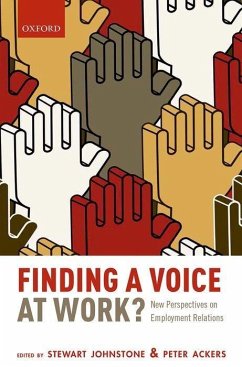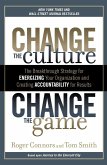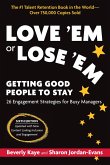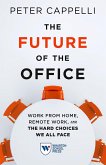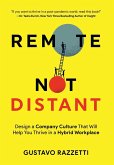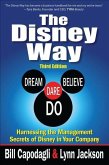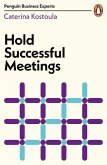Finding a Voice at Work?
New Perspectives on Employment Relations
Herausgeber: Johnstone, Stewart; Ackers, Peter
Finding a Voice at Work?
New Perspectives on Employment Relations
Herausgeber: Johnstone, Stewart; Ackers, Peter
- Broschiertes Buch
- Merkliste
- Auf die Merkliste
- Bewerten Bewerten
- Teilen
- Produkt teilen
- Produkterinnerung
- Produkterinnerung
This book offers a critical assessment of the main concepts and models of employee voice in the UK and Europe. It provides theoretical and empirical exploration of a wide range of 'voice' institutions and initiatives, including forms of representation and management techniques, and mechanisms for information and consultation
Andere Kunden interessierten sich auch für
![Change the Culture, Change the Game Change the Culture, Change the Game]() Roger ConnorsChange the Culture, Change the Game14,99 €
Roger ConnorsChange the Culture, Change the Game14,99 €![Love 'em or Lose 'Em, Sixth Edition Love 'em or Lose 'Em, Sixth Edition]() Kaye BeverlyLove 'em or Lose 'Em, Sixth Edition29,99 €
Kaye BeverlyLove 'em or Lose 'Em, Sixth Edition29,99 €![If You Build It They Will Stay If You Build It They Will Stay]() Christopher CanoIf You Build It They Will Stay22,99 €
Christopher CanoIf You Build It They Will Stay22,99 €![The Future of the Office The Future of the Office]() Peter CappelliThe Future of the Office21,99 €
Peter CappelliThe Future of the Office21,99 €![Remote Not Distant Remote Not Distant]() Gustavo RazzettiRemote Not Distant31,99 €
Gustavo RazzettiRemote Not Distant31,99 €![The Disney Way: Harnessing the Management Secrets of Disney in Your Company, Third Edition The Disney Way: Harnessing the Management Secrets of Disney in Your Company, Third Edition]() Bill CapodagliThe Disney Way: Harnessing the Management Secrets of Disney in Your Company, Third Edition27,99 €
Bill CapodagliThe Disney Way: Harnessing the Management Secrets of Disney in Your Company, Third Edition27,99 €![Hold Successful Meetings Hold Successful Meetings]() Caterina KostoulaHold Successful Meetings15,99 €
Caterina KostoulaHold Successful Meetings15,99 €-
-
-
This book offers a critical assessment of the main concepts and models of employee voice in the UK and Europe. It provides theoretical and empirical exploration of a wide range of 'voice' institutions and initiatives, including forms of representation and management techniques, and mechanisms for information and consultation
Hinweis: Dieser Artikel kann nur an eine deutsche Lieferadresse ausgeliefert werden.
Hinweis: Dieser Artikel kann nur an eine deutsche Lieferadresse ausgeliefert werden.
Produktdetails
- Produktdetails
- Verlag: Oxford University Press
- UK edition
- Seitenzahl: 336
- Erscheinungstermin: 1. April 2054
- Englisch
- Abmessung: 231mm x 155mm x 20mm
- Gewicht: 502g
- ISBN-13: 9780199668014
- ISBN-10: 0199668019
- Artikelnr.: 42344405
- Herstellerkennzeichnung
- Libri GmbH
- Europaallee 1
- 36244 Bad Hersfeld
- 06621 890
- Verlag: Oxford University Press
- UK edition
- Seitenzahl: 336
- Erscheinungstermin: 1. April 2054
- Englisch
- Abmessung: 231mm x 155mm x 20mm
- Gewicht: 502g
- ISBN-13: 9780199668014
- ISBN-10: 0199668019
- Artikelnr.: 42344405
- Herstellerkennzeichnung
- Libri GmbH
- Europaallee 1
- 36244 Bad Hersfeld
- 06621 890
Stewart Johnstone is Senior Lecturer in Human Resource Management at Newcastle University Business School and was previously Lecturer in Human Resource Management at Loughborough University. His specialist teaching includes Employment Relations and Human Resource Management courses at undergraduate, postgraduate, and executive levels. A major strand of Stewarts research has been the dynamics of employee voice and participation in both union and non-union firms. In particular, his research has examined organizational attempts to develop collaborative workplace relations in pursuit of mutual gains, and assessed the outcomes of such workplace partnerships for employers, employees, and unions. Peter Ackers is Professor of Industrial Relations and Labour History in the School of Business and Economics at Loughborough University, UK. He studied Politics and Philosophy (PPE, including Sociology) at Lincoln College, Oxford University, followed by an MA in Industrial Relations from Warwick University. His specialist teaching is in International Employment Relations, British Social History and Business Ethics. Peter's intellectual interests centre on the sociological and historical aspects of the employment relationship and how this affects ordinary people and society at large. His work stresses the moderate, constructive character of organized labour, with themes of partnership and pluralism, and challenges Radical and Marxist theories of Industrial Relations.
* Foreword
* 1: Stewart Johnstone and Peter Ackers: Introduction: Employee Voice:
The Key Question for Contemporary Employment Relations
* PART ONE: KEY CONCEPTS
* 2: Edmund Heery: Frames of Reference and Worker Participation
* 3: David Guest: Voice and Employee Engagement
* 4: Anne-marie Greene: Voice and Workforce Diversity
* PART TWO: UNION VOICE - COMPETING STRATEGIES
* 5: Peter Ackers: Trade Unions as Professional Associations
* 6: Melanie Simms: Union organizing as an alternative to Partnership.
Or what to do when employers can't keep their side of the bargain
* 7: Stewart Johnstone: The case for Workplace Partnership
* PART THREE: EUROPEAN MODELS and VARIETIES OF CAPITALISM
* 8: Peter Samuel and Nick Bacon: Social partnership in devolved
nations: Scotland and Wales
* 9: Michael Gold and Ingrid Artus: Employee Participation in Germany:
Tensions and Challenges
* 10: Andrew Timming and Michael Whittall: The Promise of European
Works Councils: 20 years of Statutory Employee Voice
* 11: Tony Dobbins and Tony Dundon: The EU Information and Consultation
Directive in liberal-market economies
* PART FOUR: LOOKING AHEAD
* 12: Richard Hyman: Making Voice Effective: Imagining Trade Union
responses to an era of post-Industrial Democracy
* 13: Bruce E.Kaufman: The future of employee voice in the USA:
predictions from an employment relations model of voice
* 1: Stewart Johnstone and Peter Ackers: Introduction: Employee Voice:
The Key Question for Contemporary Employment Relations
* PART ONE: KEY CONCEPTS
* 2: Edmund Heery: Frames of Reference and Worker Participation
* 3: David Guest: Voice and Employee Engagement
* 4: Anne-marie Greene: Voice and Workforce Diversity
* PART TWO: UNION VOICE - COMPETING STRATEGIES
* 5: Peter Ackers: Trade Unions as Professional Associations
* 6: Melanie Simms: Union organizing as an alternative to Partnership.
Or what to do when employers can't keep their side of the bargain
* 7: Stewart Johnstone: The case for Workplace Partnership
* PART THREE: EUROPEAN MODELS and VARIETIES OF CAPITALISM
* 8: Peter Samuel and Nick Bacon: Social partnership in devolved
nations: Scotland and Wales
* 9: Michael Gold and Ingrid Artus: Employee Participation in Germany:
Tensions and Challenges
* 10: Andrew Timming and Michael Whittall: The Promise of European
Works Councils: 20 years of Statutory Employee Voice
* 11: Tony Dobbins and Tony Dundon: The EU Information and Consultation
Directive in liberal-market economies
* PART FOUR: LOOKING AHEAD
* 12: Richard Hyman: Making Voice Effective: Imagining Trade Union
responses to an era of post-Industrial Democracy
* 13: Bruce E.Kaufman: The future of employee voice in the USA:
predictions from an employment relations model of voice
* Foreword
* 1: Stewart Johnstone and Peter Ackers: Introduction: Employee Voice:
The Key Question for Contemporary Employment Relations
* PART ONE: KEY CONCEPTS
* 2: Edmund Heery: Frames of Reference and Worker Participation
* 3: David Guest: Voice and Employee Engagement
* 4: Anne-marie Greene: Voice and Workforce Diversity
* PART TWO: UNION VOICE - COMPETING STRATEGIES
* 5: Peter Ackers: Trade Unions as Professional Associations
* 6: Melanie Simms: Union organizing as an alternative to Partnership.
Or what to do when employers can't keep their side of the bargain
* 7: Stewart Johnstone: The case for Workplace Partnership
* PART THREE: EUROPEAN MODELS and VARIETIES OF CAPITALISM
* 8: Peter Samuel and Nick Bacon: Social partnership in devolved
nations: Scotland and Wales
* 9: Michael Gold and Ingrid Artus: Employee Participation in Germany:
Tensions and Challenges
* 10: Andrew Timming and Michael Whittall: The Promise of European
Works Councils: 20 years of Statutory Employee Voice
* 11: Tony Dobbins and Tony Dundon: The EU Information and Consultation
Directive in liberal-market economies
* PART FOUR: LOOKING AHEAD
* 12: Richard Hyman: Making Voice Effective: Imagining Trade Union
responses to an era of post-Industrial Democracy
* 13: Bruce E.Kaufman: The future of employee voice in the USA:
predictions from an employment relations model of voice
* 1: Stewart Johnstone and Peter Ackers: Introduction: Employee Voice:
The Key Question for Contemporary Employment Relations
* PART ONE: KEY CONCEPTS
* 2: Edmund Heery: Frames of Reference and Worker Participation
* 3: David Guest: Voice and Employee Engagement
* 4: Anne-marie Greene: Voice and Workforce Diversity
* PART TWO: UNION VOICE - COMPETING STRATEGIES
* 5: Peter Ackers: Trade Unions as Professional Associations
* 6: Melanie Simms: Union organizing as an alternative to Partnership.
Or what to do when employers can't keep their side of the bargain
* 7: Stewart Johnstone: The case for Workplace Partnership
* PART THREE: EUROPEAN MODELS and VARIETIES OF CAPITALISM
* 8: Peter Samuel and Nick Bacon: Social partnership in devolved
nations: Scotland and Wales
* 9: Michael Gold and Ingrid Artus: Employee Participation in Germany:
Tensions and Challenges
* 10: Andrew Timming and Michael Whittall: The Promise of European
Works Councils: 20 years of Statutory Employee Voice
* 11: Tony Dobbins and Tony Dundon: The EU Information and Consultation
Directive in liberal-market economies
* PART FOUR: LOOKING AHEAD
* 12: Richard Hyman: Making Voice Effective: Imagining Trade Union
responses to an era of post-Industrial Democracy
* 13: Bruce E.Kaufman: The future of employee voice in the USA:
predictions from an employment relations model of voice

